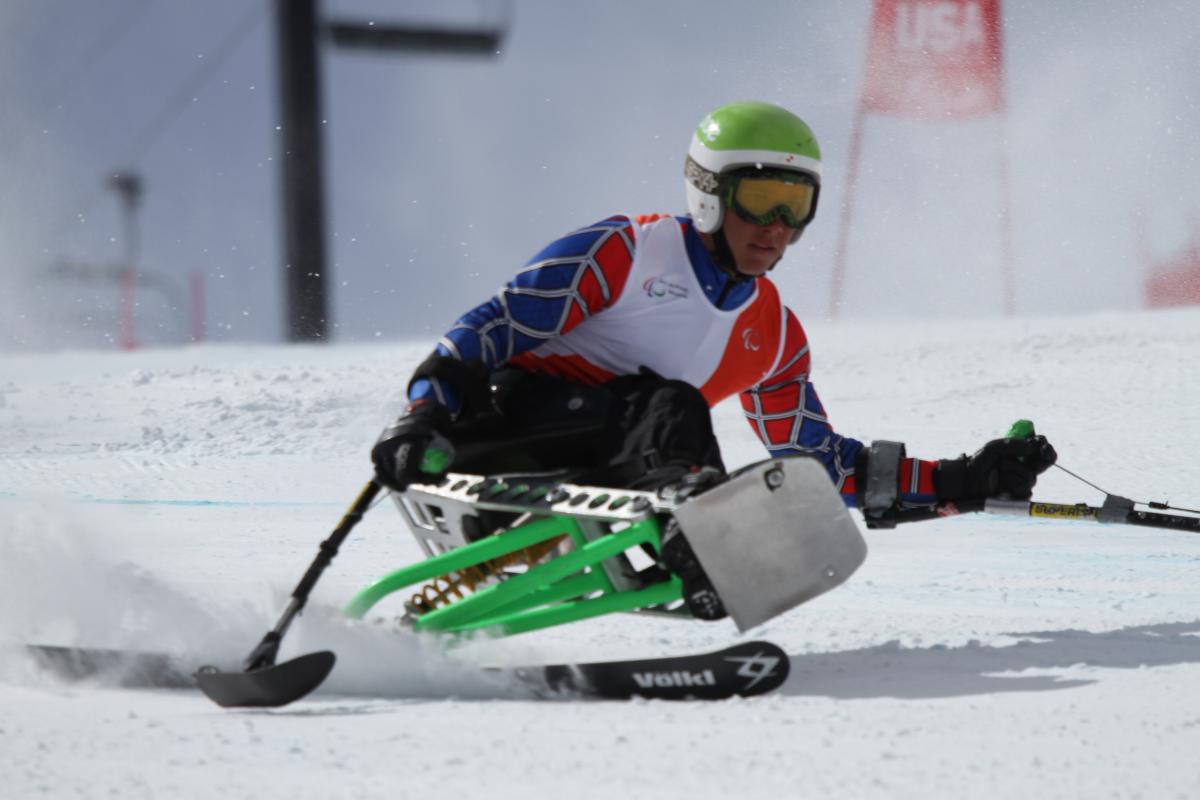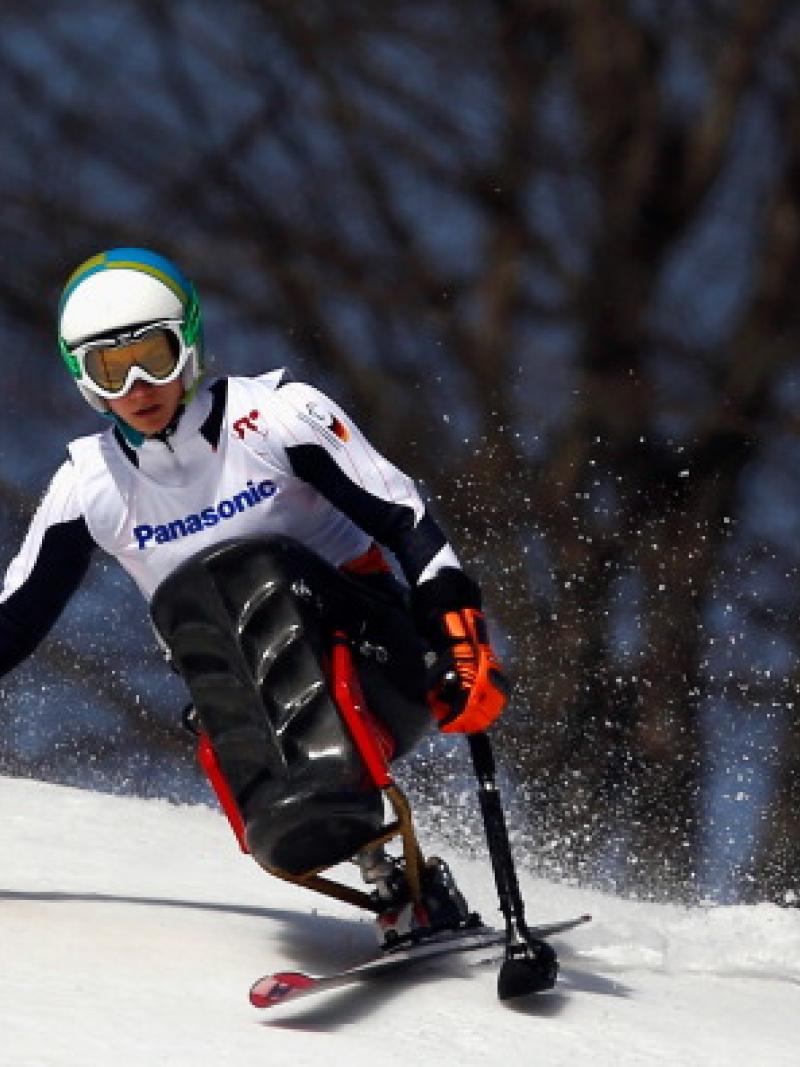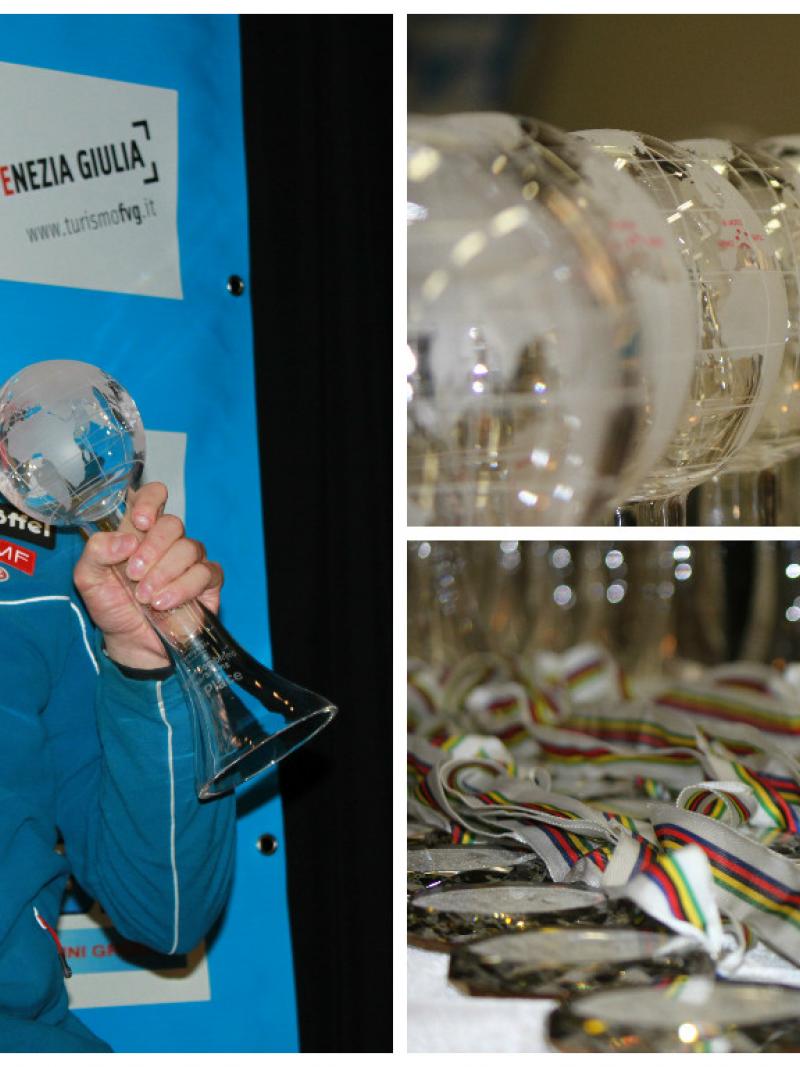Kurka targets PyeongChang 2018 start line
The US alpine skier, who has broken his back three times, is coming off his first World Championships medal and believes that a less ‘gung-ho’ approach to competition will equal success. 26 Dec 2015
USA's Andrew Kurka came 10th in the men's Giant Slalom Sitting at the IPC Alpine Skiing World Cup in Winter Park, USA
“If I can decrease the stupidity and my gung-ho attitude, I can get some more finishes out of it.”
The USA’s Andrew Kurka has learned to deal with his injuries in stride.
Readers of his blog will find more photos of X-rays than medals. That is not by accident. The 23-year old has not completed a full ski season without breaking a bone somewhere in his body. He has also broken his back on three separate occasions, the last of which happened in 2014 in Sochi during a Paralympic Games training run.
When it comes to goals for the 2015-16 season and beyond, Kurka believes consistency is the key to staying healthy. As someone so used to pressing the limits of speed, slowing down he believes will yield better results, and health in the long run.
“You have to look at the big picture. I get injured a lot and much of that is bad luck, happenstance and a lot of stupidity by me,” Kurka said. “If I can decrease the stupidity and my gung-ho attitude, I can get some more finishes out of it.”
Kurka finished 2014-15 on the right track, winning his first World Championships bronze medal in super-G. From there, he won a National Championship in giant slalom at Loon Mountain. This in addition to his downhill, super-G and super combined victories at US Nationals.
“Really what I’m looking for at this point is consistency in finishing,” Kurka said. “Remember, I only started skiing competitively three-four years ago, but I get injured a lot and haven’t been on snow as much as I’d like to. Right now, I’m looking for a clean season with no injuries and several finishes.”
Kurka’s background is anything but risk-adverse. He was a six-time Alaskan state champion in freestyle and Greco-Roman wrestling, an avid off-roader and was the first person in a monoski to ski the Christmas Chute on the North Face of Mt. Alyeska in Girdwood, Alaska.
He has also taken part in monocross events at the ever-popular X Games since he was just 17. His best finish at the event, which includes several other racers at the same time on a course with obstacles and jumps, was fourth place.
“It’s a very different environment and the event is one that brings a lot of popularity to Paralympic sport,” Kurka said. “You have a mass audience of people who realise that we put just as much out there as able bodied racers do.”
Due to a femur injury in 2015, Kurka was relegated to the broadcast booth with ESPN. He not only hopes to be back in 2016, but wants others from the para-sport world to join him as well.
“I don’t think people should just limit themselves to being ski racers,” Kurka said. “Why not try new things and compete in as many different ways as possible?”
That thirst for competition is what makes Kurka tick, which is also why the opportunity that eluded him in Sochi is fuelling him for the 2018 Paralympic Winter Games. Though a part of the US team and delegation, right down to the Post-Games White House visit, Kurka never got to take the starting line.
He plans on doing so in PyeongChang in 2018 … and beyond.
“Right now, I plan on competing until I’m at least 30 years-old, so PyeongChang is definitely on the top of my mind,” Kurka said. “My goal is to ultimately be the best in the world and a Paralympic champion. That’s where my focus is right now.”
The 2015-16 IPC Alpine Skiing season continues with a Europa Cup in La Molina from 7-10 January.






